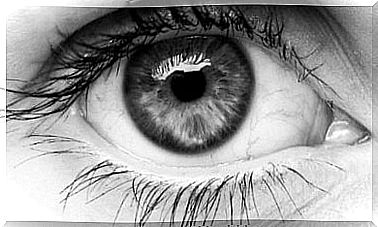Sudden Loss – Pain Management Advice
Nobody is prepared to lose a loved one, so the response can be unpredictable. Release your feelings and cry when necessary.

In the course of life we pass through an infinite number of moments of serenity, happiness, weakness, despair and sadness. Most of the time we are not prepared for painful moments, especially when it comes to the loss of a loved one.
We have to learn to free ourselves from these painful situations and let the person who is so important to us go.
There are many different events that can trigger feelings of loss: a change of school in children, the separation of parents, the loss of a job, distance from loved ones, etc. The death of a loved one is the most difficult to overcome.
The different stages of grief or pain are probably known to everyone. These explain the natural process and consist of the following emotional states:
- Negation : The person does not believe in the situation or does not accept it.
- Anger : The suffering person feels great anger at anything related to the deceased person.
- Overcoming : You slowly begin to understand and then try to find a solution.
- Grief : In this stage you become clearly aware of the loss. It is the most difficult phase.
- Depression : This can be long-lasting and difficult to manage.
- Acceptance : The depression subsides, everyday life slowly returns, even if the loved one is no longer there.
There are cases in which these stages take place in a different order. However, this is like a staircase, each stage is a step that must be overcome in order to progress step by step until the grief is accepted and overcome.
Even if one will always think about the loved one, the pain will gradually subside. Time heals many wounds, but we still want to give some advice for these difficult situations.
Speak up
It’s normal to feel anger one day, accept it the next, and then just want to cry again.
We are not used to losing a loved one, so all feelings should be freely expressed. If you hide them or don’t let them, you are harming yourself. This can have physical and emotional consequences. We all know how closely the mind and body are connected.
Make a list of all the good things in life

In this depressed phase, life can seem pointless. Negative thoughts keep coming up. So it can be of great help to list all the good things in life every day, life partner, job, children, siblings, parents, friends, etc.
Try not to see the half-full glass, not the half-empty glass. Even if the loved one is gone, there are many things that can make you happy.
Do not distance yourself from your family and friends in this difficult moment. They will give you the affection you need.
Talk about your feelings. A psychologist can then help you if necessary. He will listen to you and support you to overcome your pain.
Don’t hide in the bitterness

There are extreme cases in which the suffering is borne for many years: dark clothing, isolation and escape from social events.
This vicious circle should be avoided because friends in particular can help you out of the deep tunnel of depression.
Take care of your health after the loss

Those who go through a depressive phase often lose all desire, are not hungry, spend sleepless nights and, moreover, often do not have enough strength to look after themselves. But it is precisely in this situation that further diseases should be avoided.
Eat a healthy diet, try to get enough sleep, avoid alcohol and cigarette consumption, and try not to take sedatives without a doctor’s prescription.
Again as a reminder
When a loved one passes away, very difficult times can ensue. But over time you too will be able to accept the situation and overcome the pain.









